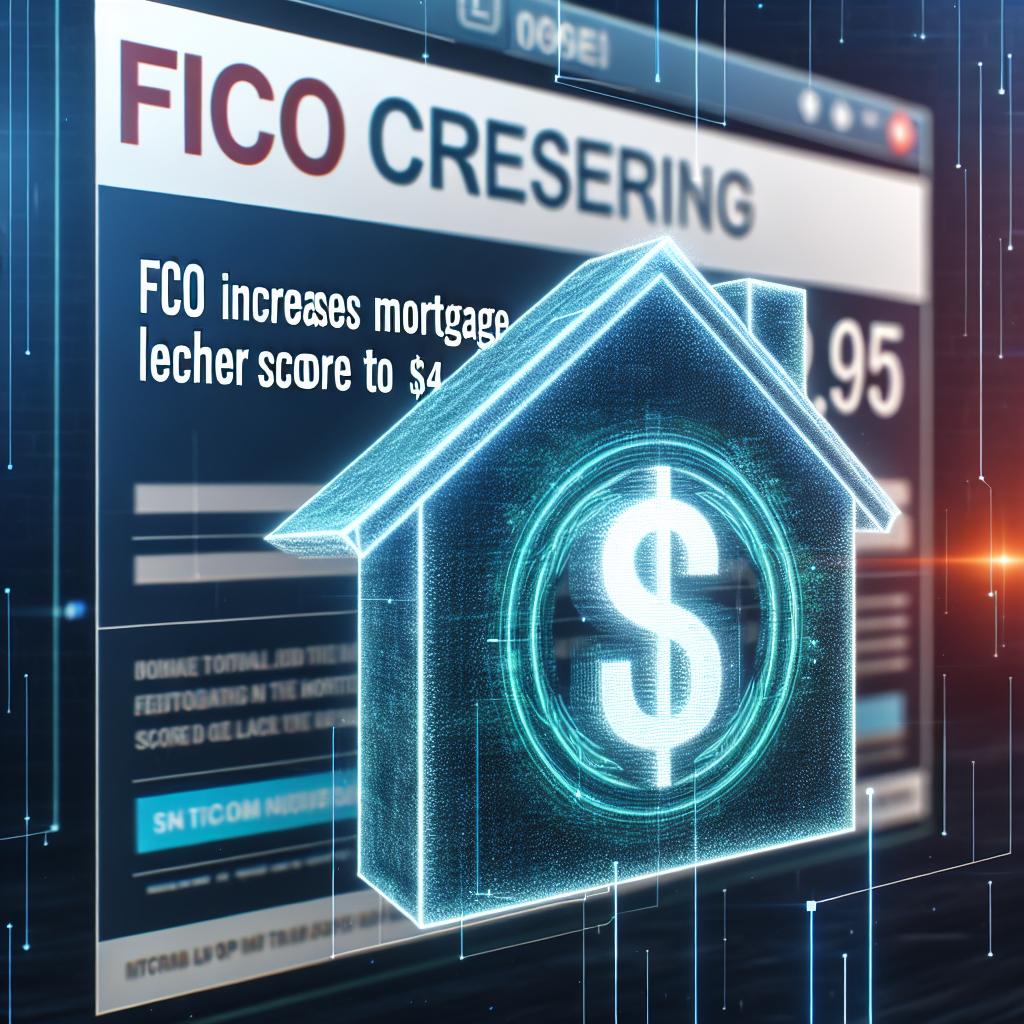FICO Increases Mortgage Lender Score Price to $4.95
In a significant move that has caught the attention of the financial and real estate sectors, FICO, the leading credit scoring company, has announced an increase in the price of its mortgage lender score to $4.95. This decision has sparked discussions among industry professionals and consumers alike, as it could have far-reaching implications for the mortgage lending process. This article delves into the reasons behind this price hike, its potential impact on various stakeholders, and what it means for the future of mortgage lending.
Understanding FICO Scores
FICO scores are a critical component of the mortgage lending process. These scores, which range from 300 to 850, are used by lenders to assess the creditworthiness of potential borrowers. A higher FICO score indicates a lower risk of default, making it easier for individuals to secure favorable loan terms. The FICO score is calculated based on several factors, including payment history, credit utilization, length of credit history, new credit, and credit mix.
Reasons for the Price Increase
FICO’s decision to raise the price of its mortgage lender score to $4.95 is driven by several factors:
- Increased Operational Costs: The cost of maintaining and updating the complex algorithms that generate FICO scores has risen. This includes investments in technology and data security.
- Inflationary Pressures: Like many other industries, FICO is facing inflationary pressures that have increased the cost of doing business.
- Enhanced Features: FICO has introduced new features and improvements to its scoring models, which require additional resources and investment.
Impact on Mortgage Lenders
The increase in the price of FICO scores is likely to have several implications for mortgage lenders:
- Cost Pass-Through: Lenders may pass on the increased cost to borrowers, potentially raising the overall cost of obtaining a mortgage.
- Competitive Pressure: Lenders may seek alternative credit scoring models to reduce costs, leading to increased competition in the credit scoring market.
- Operational Adjustments: Lenders may need to adjust their operational budgets to accommodate the higher cost of FICO scores.
Impact on Borrowers
For borrowers, the price increase could have both direct and indirect effects:
- Higher Loan Costs: If lenders pass on the increased cost, borrowers may face higher fees or interest rates.
- Increased Scrutiny: Lenders may become more selective in their lending practices, potentially making it more challenging for some borrowers to qualify for loans.
- Alternative Scoring Models: Borrowers may encounter lenders using alternative credit scoring models, which could impact their ability to secure loans.
Case Studies and Statistics
To understand the potential impact of this price increase, it is helpful to look at historical data and case studies. For instance, a study by the Consumer Financial Protection Bureau (CFPB) found that even small changes in credit scoring models can significantly affect loan approval rates and terms. Additionally, a report by the Urban Institute highlighted that changes in credit scoring practices could disproportionately affect minority and low-income borrowers.
Conclusion
The decision by FICO to increase the price of its mortgage lender score to $4.95 is a noteworthy development in the financial industry. While it reflects the rising costs and enhancements in credit scoring, it also poses challenges for both lenders and borrowers. As the industry adapts to this change, stakeholders will need to navigate the evolving landscape of credit scoring and mortgage lending. Ultimately, the impact of this price increase will depend on how lenders and borrowers respond to the new dynamics in the market.



